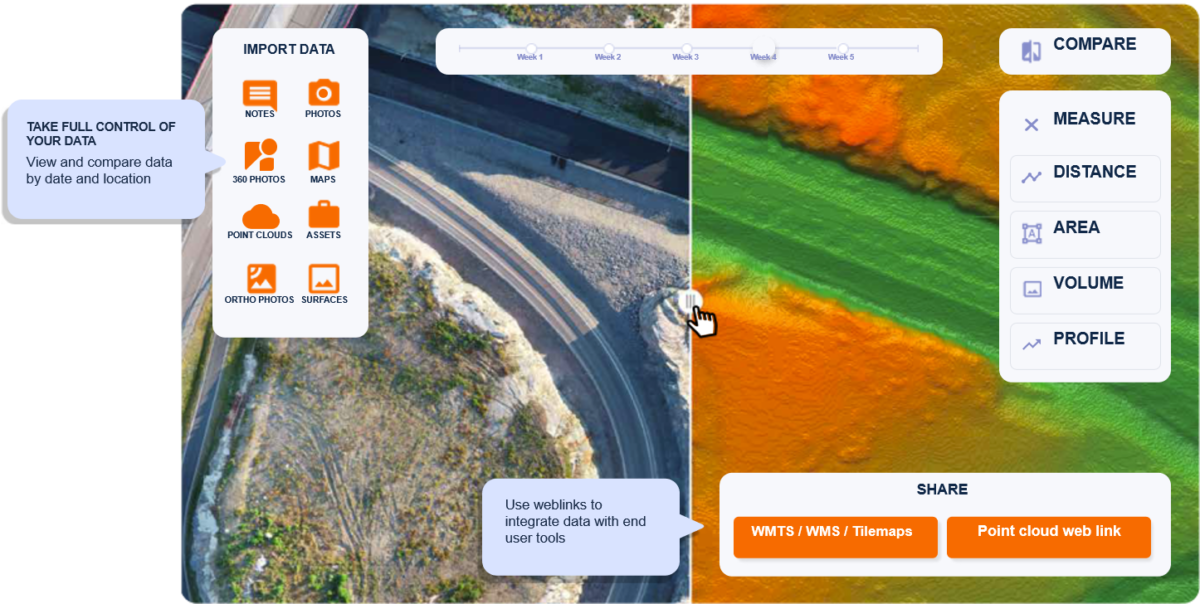
Pointscene API Early Access
Pointscene is pleased to announce the availability of its first public API. This toolset offers an easy way to build custom software applications that use Pointscene’s wide range of powerful data management features.
It enables construction and engineering companies of all sizes to build fast, reliable reality data applications that are fit for their unique needs.
Using Pointscene’s API, for example, a company can build an application that:
- Ingests point clouds and calculates change reports for multiple users
- Creates photogrammetric maps and 3D models from images
- Updates a site progress map with latest orthophotos
- Pushes the newest version of a data set to multiple storage locations
- Converts point clouds to orthophotos and XML surfaces
- Automates cumbersome coordinate and format conversions
- Streams data sets directly into end-user applications for BIM, CAD, GIS, etc.
- All of the above
Main features:
- GraphQL & REST API connections
- Support for all types of reality and other construction data
- Images, 360
- Orthophotos, maps and rasters
- Design drawings and layouts
- Triangulated surfaces
- Point clouds
- All common GIS/CAD formats
- Metadata extraction, API database
- Compatibility with major cloud platforms
- Google Cloud, Azure, Amazon or any Kubernetes clusters
- Built-in support for GDAL, PDAL and other common open source geospatial libraries
- Default and custom processing pipelines
- for data conversions, coordinate transformations, tiling, cut/merge/filter/classify,…
- Microservices for volume and profile calculations
- Support for very large datasets
- Publishing data via web services
- Extensible and scalable
- Add any command line software into your workflows with relative ease, and with Kubernetes -level scalability
Open source, open formats, open standards
Pointscene’s development toolset leverages proven open source components and libraries, so you can assemble your custom application on top of rock-solid tested code. The API also supports a broad range of open formats and standards, for easy interoperability and no risk of vendor lock-in.
Oops! We could not locate your form.